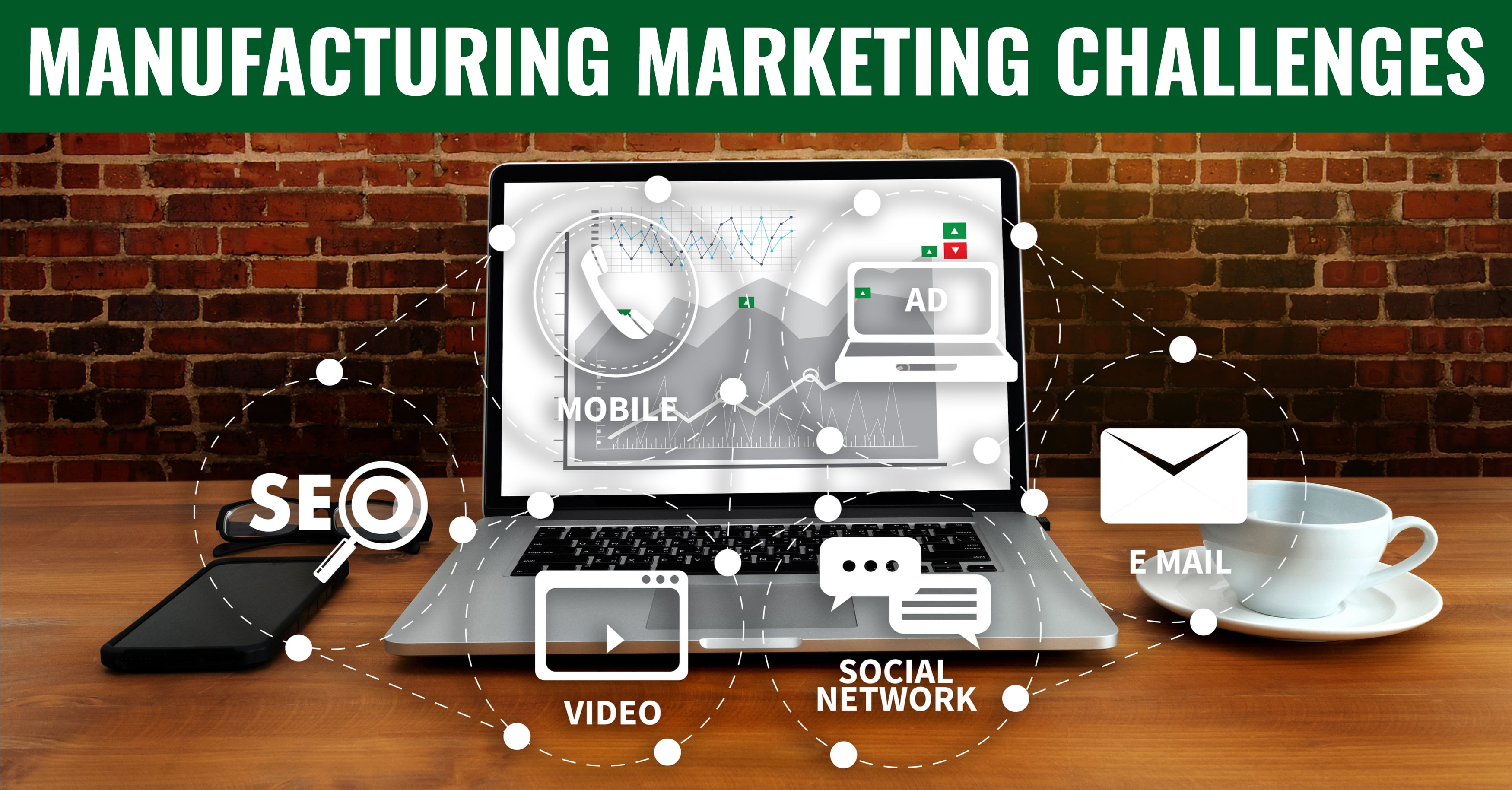How Manufacturers Can Update Marketing Strategies
Manufacturing has never been more competitive. Consumers have access to products all over the world, giving them the ability to choose whatever they want. The power of modern customers is putting pressure on manufacturers to make their goods stand out in a crowded market.
However, businesses are missing out on a key ingredient to win over consumers: a solid marketing strategy. One study reported that 27% of manufacturers considered their marketing activities outdated, while 20% didn’t prioritize marketing at all. Without a strong marketing approach, you can’t expect your company and products to gain the attention of potential buyers.
Manufacturers have been notoriously slow to adopt marketing strategies, but it’s time to speed things up. We’ll explain how to combat three common marketing challenges to help you become an industry leader.
1. Outdated Methods and Technology
Gone are the days of direct mail marketing, broadcast commercials and Yellow Page ads. 70% of the B2B buyer’s journey takes place before they ever get in touch with a sales rep, and most of that journey occurs online. Increasingly self-reliant consumers are searching for information on Google and social media platforms, making digital marketing an essential for today’s businesses.
But many manufacturers don’t have the tools in place to develop a digital marketing strategy. They’re tracking marketing performance through spreadsheets or on paper—if they’re tracking it at all. This doesn’t cut it anymore.
Marketing Automation software makes it easy to establish a digital presence. HubSpot, for example, is a user-friendly solution available for free. It allows you to develop digital content, websites, forms and campaigns in a few simple clicks. You can then drill down into dashboards to determine where most of your leads are coming from. Though marketing has gone through a major transformation in recent years, tools such as HubSpot simplify content management and marketing processes to help you boost your lead generation.
2. Insufficient Content
B2B customers don’t make purchases without conducting research. They don’t use the internet to get attacked by blatant advertising; they’re on the hunt for tips and insights to help them select the right products and services. However, customers aren’t getting what they want. The web is saturated with poor content centered on selling products rather than on informing consumers.
Enticing content is the cornerstone of digital and inbound marketing tactics. If you develop content that answers the questions and addresses the concerns of your target audience, you can rise above the product-centered content on search engine results pages and start seeing an influx of leads.
To do this, define your company’s buyer personas. Where are they located? What industries are they in? How do they engage with your content? From there, you can research their pain points and goals. Take some time to ask your product developers, subject matter experts, sales reps and C-Suite a few questions about your product’s unique selling points and what makes it important for buyers. This information will guide you to create relevant content for your audience. Marketing data will also help you determine the most effective forms of content for driving conversions and website traffic.
3. Poor Visibility
Marketers often struggle to gain full visibility into their processes and contacts. Leads come in through multiple channels, and marketers have trouble keeping up with every touchpoint. As customers increasingly crave personalized engagements, this lack of insight puts manufacturers at a serious disadvantage.
Instead of looking through multiple systems to figure out where leads are coming in, marketers can utilize HubSpot to analyze marketing performance and track prospects from beginning to end. These actionable insights show you instantly which forms, blog posts or email campaigns are generating the most leads. This takes the guesswork out of inbound marketing.
Integrating HubSpot with ERP software improves visibility by automatically transferring data back and forth between your platforms. Marketers can automate more processes and gain deeper customer insights. Instead of logging into multiple systems, the marketing team can access each contact’s sales history, shipping orders and updated information to capitalize on new opportunities and automatically send targeted collateral and emails. HubSpot integration gives you the real-time insights you need to personalize customer experiences and increase efficiency.
Wrap Up
Manufacturers can no longer afford to stray behind marketing practices. Winning over your audience requires a strong focus on modern digital marketing trends and your buyers’ needs.
At Datix, we’ve delivered manufacturing and distribution software solutions for over 20 years. Our certified experts understand the challenges facing multiple industries. An Epicor Gold Partner, Datix specializes in connecting Epicor ERP with HubSpot through Unity, our pre-built integration solution. Unity is rapidly installed and fully managed by our consultants, so you can connect your software without risk or hassle.
Don’t let marketing challenges slow down your lead generation. Get in touch with Datix to learn more about Unity!
{{cta(‘770c1544-d87d-4acb-9fc4-7a25e1385094′,’justifycenter’)}}


